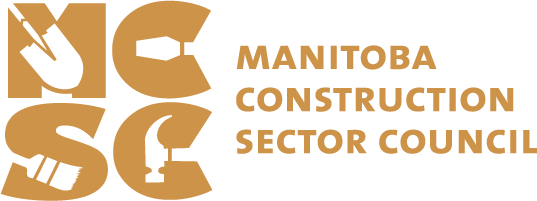Job Habits
to keep you employed.
When you start a job, your boss will evaluate how you work.
Be prepared for work: You were hired because the employer felt you had the skills and abilities needed to get the job done. You will now need to prove to your employer that he or she made the right choice in hiring you. It is important to start a new job with a good attitude and thorough preparation. One way to prepare for a new job is to list any issues or problems you have that may affect your employment. Then, list a solution to the issue or problem. Use the Problem Identification form for listing this information. Review the form and follow the steps listed in order to be best prepared for your new job.
Things to Keep In Mind
-
Develop Good Working Habits:
Show your boss you have the right attitude… Show them what you can do.
-
Be on Time:
The first thing that an employer sees about you is when you arrive to work. It is important to arrive at work as per schedule. Your coworkers also rely on you to show up to work on time.
-
Keep Your Employer Informed:
If you will be late or miss work, call your employer. Every workplace has people just like you. Employers will understand if you are sick or need to arrange emergency care for any child or adult. They will not be as understanding if you fail to let them know why you did not show up for work or if you do not tell the truth about your absence.
-
Work Hard:
Make sure you provide a fair day’s work for a fair day’s pay. Conduct your personal business on your breaks and outside of work. Do not use work phones or computers for personal reasons.
-
Wear the Proper Clothing:
Find out what kinds of clothes are acceptable at your work. Most employers want your clothing to be clean and appropriate for the job. What you wear should not stop you from doing your job or interfere with your safety. Some employers will provide uniforms. Wear the proper (PPE) personal protective equipment on a job site. Before you wear jeans and t-shirts to work, observe what people wear during your first week of work. (This could be a good question to ask potential employers at your interview.)
-
Work Safely:
Keep safety in mind when working. Develop habits on the job that will avoid accidents for you and for fellow workers.
-
Schedule Time Off:
Arrange time with your employer if it will be necessary to be away from work for appointments or vacation. Employers appreciate advanced knowledge, because they can schedule someone else to cover your duties. Employers will not be happy to find out that you knew before your absence but fail to inform them. Find out what your employer’s policies are about time away from work.
-
Don’t Abuse Your Breaks:
Your employer offers break and lunch times. Find out how many breaks are offered, how long they are, and when you should be back at your work area.
-
Ask Questions:
If you don not understand something, ask for a better explanation. Employers expect new employees to ask for instructions and demonstrations. Employers would rather spend a little more time to train you than to spend a lot of time to correct errors.
-
Find out About Workplace Rules:
Many employers have formal employment rules. These rules are often presented in employee handbooks, written policies, and procedural manuals. Get copies when you first start working and learn the rules.
-
Leave Weapons at Home:
Most employers assume weapons at work will be used offensively again coworkers. Some employers may fire people for carrying weapons. Just the fact that you carry weapons can be used against you.
-
Do Not Use Drugs and Alcohol:
Being sober can help you focus on your job duties and do them well. Your health will be better. You will not have to worry about getting caught if you are using drugs and alcohol on the job site. Your employer will be held responsible when you break the law at work.
-
Stay Away from Problem Employees:
Some people tend to be negative about their jobs. Others may do things against the rules, waste time, or in other ways not being good workers. Spending time with these people will affect your performance. Your coworkers and supervisors may begin to see you as a problem. Be friendly, but do not socialize with people like this more than necessary. Do not share personal information/problems with co-workers, if possible. Talk with someone outside of work about your problems.
-
Manage Children and Other Family Members:
Although children or other family members may be the most important part of your life, they are not the concern of an employer. Make sure that childcare arrangements are in place prior to accepting a job. If your children are in school, arrange childcare so that you do not miss work when they are ill.
-
Be Yourself:
Be natural, friendly, and show respect to your coworkers and supervisors. Show confidence in the way you present yourself, and don’t forget to smile.
-
Be Willing to Take on Additional Responsibilities:
Try your best to do something extra when you are asked. Volunteer for tasks that allow you to learn something new.
-
Know Yourself:
Assess your strengths and weaknesses. What can you do easily and correctly? What takes more time? Determine if training can help. Training can be formal, offered by a school or the employer’s training department; or it can be informal, when you learn from your supervisor or fellow worker. Let your supervisor know if a task requires activities you need more time to learn. This way, the time schedule can be adjusted or training can be arranged.
-
Attitude:
The way you approach your work and your coworkers can affect how you feel about your work and yourself. A positive attitude can make your work more enjoyable. Try to separate your work and personal life. If you are having a bad day at home it can affect how you work. When you come to work leave your personal problems until the end of the day. Personal problems and work don’t mix.
-
Respect:
Treat other people just like you want them to treat you. This respect for others and their feelings will reflect back to you. Remember that you have to earn respect from others, it is not automatically given.
-
Do a Good Job:
You will feel positive? Others will respect you.
-
Make a Good First Impression:
First impressions last for a long time in people’s minds. If you make a good impression, people will think positively about you and want to work with you.
-
Respect Others:
People will respond by respecting you. You will feel good about yourself.
-
Keep a Positive Attitude:
Time will pass more pleasantly. People will be more positive towards you.
-
Admit Your Mistakes:
You will learn more and be better at your job. Others will respect you.
-
Let People Know Whose Idea It Was:
If you give credit where it is due, others will do the same for you and your good ideas.
-
Use Appropriate Language:
People will use appropriate language around you. You will feel better about yourself and your coworkers.

